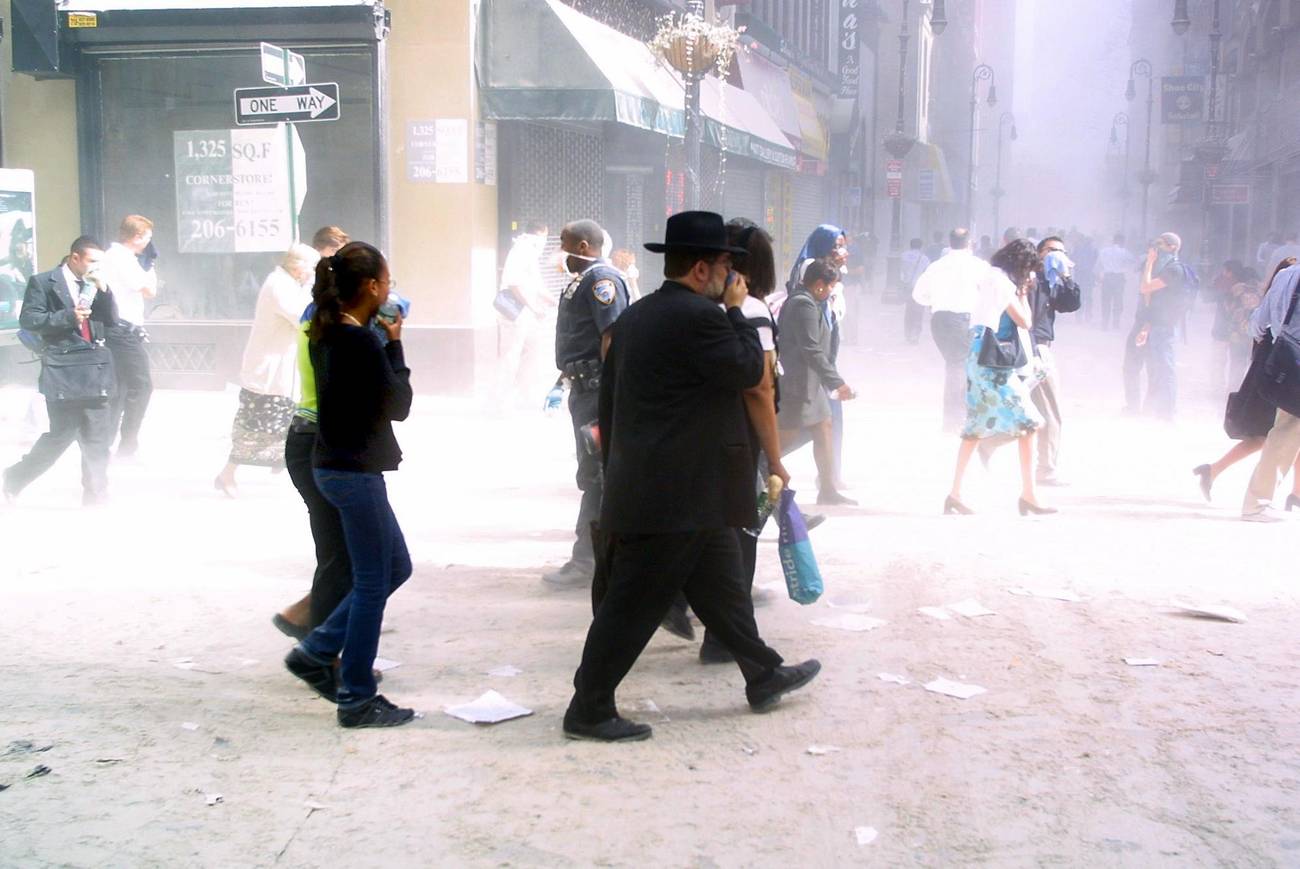Divine Right
The Sept. 11 attacks altered many people’s convictions. For ultra-Orthodox Jews, they reinforced a strongly held belief in divine authority.



Sept. 11 was, and still is, thought of as an event that brings all Americans together in solidarity. But the past 10 years have also revealed how differently every community makes sense of this shared assault, doing so each on its own terms. On the occasion of the 10th anniversary of the attacks, I’m reminded of responses to Sept. 11 among American Hasidim that reflect a sensibility all their own. In Brooklyn, on the streets of Williamsburg, Yiddish posters likened the destruction of the twin towers to a threat that hit even closer to home: the so-called invasion of this neighborhood, long home to Satmar and other, smaller Hasidic communities, by artistn. This Yiddish term, used by American Hasidim, refers not just to artists but more generally to the yuppies who have flocked to the former warehouse and residential district in the past decade or so, opening bars and art galleries. Artistn have transformed the local demographic balance and, moreover, the real-estate market. (Of course, by now the actual artists who pioneered this gentrification have been priced out of hipster Billyburg.)
Such dire comparisons are not unusual for Hasidim. As in other fundamentalist communities, everything is understood to be powerfully meaningful within a single, comprehensive worldview. Renting apartments to artistn, like watching television or buying a “trayf” cellphone—that is, one that takes pictures or accesses the web, thereby offending Hasidic standards of modest conduct—has the potential to undermine the sacred mission of an entire Hasidic community and, therefore, of the Jewish people as a whole.
Some Hasidim also understand Sept. 11 as an occasion for miracles. In 2002, a Skvirer Hasid published a Yiddish book on the attacks, recounting cases of people who, thanks to supernal intervention, missed their plane or left late for work and so escaped the destruction. The book’s title, Himl Signaln, or “heavenly signals” in English, is telling in its ambivalence. Were these attacks terrorist messages that came from the sky—one possible meaning of himl—or were they divinely ordained signs from on high?

Here, the two possibilities are one and the same, the former guided by the latter. Therefore, to cite but one example from the book, a devout, God-fearing Jew who worked in the twin towers survived the attack on Sept. 11 because he had a doctor’s appointment that morning—not by happenstance but by a miraculous intervention that affirmed his piety.
Many Americans found their faith—in religion, in government, in humankind—shaken, or at the very least troubled, by the events of Sept. 11. American Jews were alarmed at anti-Semitic responses to the attacks, including malicious rumors that Jews “knew” to stay away from the World Trade Center on that fateful day. The Hasidic response to Sept. 11 appears to be quite different: The attacks did not cause them to question their faith in God, nor did defamatory conspiracy theories disturb their embrace of Jewish chosenness. Sept. 11 may have altered the convictions of many people, in some cases radically. But for others, including these Hasidim, it reinforced strongly held beliefs, becoming for them a case study in divine authority and a metaphor for urban destruction.
The remembrance of Sept. 11 in this one Jewish community offers an object lesson in both the power and the limits of catastrophe as a shared experience. The terrorist attacks galvanized people around the world, riveted by the horrifying images that swiftly circulated through the mass media. The global outpouring of sympathy for New Yorkers was extraordinary. But it did not take long for Sept. 11 to become a divisive subject, whether locally, nationally, or worldwide, as debates proliferated: what its causes were, who was at fault, how it should be responded to, how it should be remembered.
The 10th anniversary of the attacks may well seem an appropriate time for Americans to come together as a nation, especially in a period that is so politically riven. At the same time, it is worth remembering that even events of the enormity of Sept. 11 do not change everything, though at first it may seem as though they do. Rather, they erupt in the midst of busy lives, each going about its busy-ness with a different sense of purpose. Catastrophes evoke an intense desire to restore life to its former business, to reassert its sense of purpose. Those whose lives rest on firm foundations of faith, like these Hasidim, are most likely to reaffirm their convictions. Those who are by nature skeptical find that they have that much more to question.
Jeffrey Shandler is a professor of Jewish studies at Rutgers University. His latest book is Jews, God, and Videotape: Religion and Media in America.